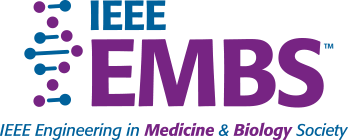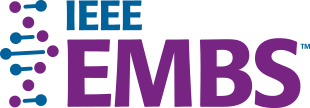Over the past two years, the severe acute respiratory syndrome coronavirus 2 (SARS-CoV-2), and the associated coronavirus disease (COVID-19), have greatly impacted our lives. This pandemic has revealed how our health care systems were not prepared for this major challenge, especially with respect to treatment, rapid diagnosis, and tracking, as well as limited hospital equipment, staff members, and resources. COVID-19 will be one of the deadliest pandemics in modern history and continues to strain resources available not only to health care workers, but also the general public, while the number of infected people and cases continues to drastically increase daily, especially within the United States and Europe.
Furthermore, we believe the lack of a global collaborative strategy has hindered community attempts to “flatten the curve”—slow the spread of the virus, prevent mortality, and lessen the economic burden of this disease globally. There is an unmet and urgent need for stronger global partnership, health care reform, and more equitable vaccine and data distribution to combat the current pandemic and prevent future ones. This lack of global partnership and vaccination-equity has directly led to the rise of additional variants, including delta and omicron. Therefore, a comprehensive and global vaccination plan is urgently needed to prevent additional variants, which could challenge current vaccines, and contain the spread of the SARS-CoV-2 virus.
At EMBS, our mission is to foster and promote global biomedical engineering innovations, research, education, and collaboration. We aim to improve the lives of all humanity, as well as to increase general awareness on the impact of biomedical engineering innovations in health care, the economy, and society. To achieve this, we have built a vibrant, global ecosystem of engineers, scientists, physicians, health care professionals, and industry leaders. In this ecosystem, we openly exchange ideas, disseminate our research, share data, and mentor the next generation of leaders in academia, industry, and government to prepare for future health care challenges.
Achieving despite our challenges
In spite of all the pandemic challenges, with the amazing resilience, dedication, and support of our members, we were able to continue having technical activities and conferences virtually, including IEEE Special Topic conferences—in particular, the IEEE-EMBS Conference on Neural Engineering (NER’21) and the IEEE International Conference on Biomedical and Health Informatics (BHI 2021). NER’21 was held on May 4–6, 2021, and the conference hosted seven keynote speakers with the participation of 643 people. The aim of the conference theme was to highlight breakthrough advances in novel engineering tools for elucidating brain function and neurotechnologies for the restoration and enhancement of impaired sensory, motor, and cognitive functions. BHI 2021 was held virtually, July 27–30, 2021, with the participation of seven exceptional keynote speakers and more than 400 people. The aim of the conference was to promote and foster informatics and computing in health care and life sciences. The conference focused on “reshaping health care through advanced AI-enabled health informatics for a better quality of life.”
The 43rd Annual International Conference of the IEEE Engineering in Medicine and Biology Society (EMBC) was held on November 1–5, 2021. The aim of the conference was to address the challenges of bringing health care innovations into clinical practice quickly. The conference theme focused on “Changing Global Health Care in the Twenty-First Century.” Four exceptional conferences and 12 theme keynote speakers highlighted the event, as well as several outstanding special sessions with the participation of 2500 people.
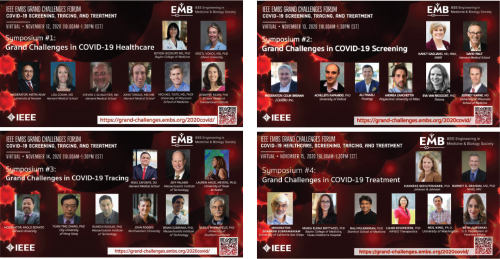
We have already begun a few new initiatives including public forums to share knowledge and stimulate discussion about pressing health care concerns, and to discuss how engineering innovations can be translated into practice to produce effective solutions to these grand challenges. In November 2020, we led the IEEE-EMBS Public Forum on COVID-19 Health Care, Screening, Tracking, and Treatment with the participation of 29 globally well-respected plenary speakers and more than 1200 participants (Figure 1). The second virtual forum was a paradigm-shifting event on Data Science and Engineering in Health Care with more than 2000 participants, held February 10–13, 2021 (Figure 2). The event featured 36 global scholars and leaders from the health care industry, research institutions, and academia in four symposiums highlighting medical imaging, precision medicine, digital health care, and the brain and neural system, and more than half of these speakers were women and ethnic minorities.
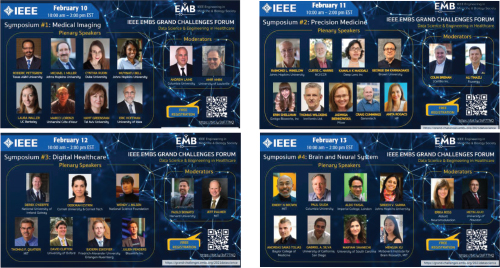
In August, the public forum on Health Care Industry Trends: Care, Innovations, and Entrepreneurship—showcasing 28 industry leaders—was held in the areas of medical devices, biopharma, medical imaging, biotechnology, life sciences, and neurotechnology. Again, in line with our society’s goals of diversity, equity, and inclusion, more than half of the speakers were women and ethnic minorities. This event may have been the first and most comprehensive gathering of health care leaders in any biomedical engineering conference to date (Figure 3). We also organized the second IEEE-EMBS Brain, Mind, and Body (BMB) Symposium and Workshop, co-sponsored by the IEEE BRAIN Initiative, with the participation of nine plenary speakers and 700 participants. The aim of the event was to focus on more futuristic integration of unobtrusive and minimally invasive neurotechnology and medicine, cognitive neural engineering and natural intelligence, as well as translational neural engineering for health and wellness.
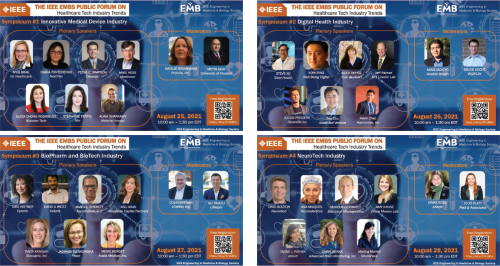
Throughout 2021, the IEEE Transactions on Biomedical and Health Informatics (JBHI) has been the leading journal in biomedical informatics with an annual submission rate of more than 2100 articles (~36% increase over 2019) and a current impact factor standing at 5.23 (~24% increase over 2019).
Looking forward
We plan to organize several new technical activities in 2022. The IEEE-EMBS Grand Challenge Meeting on Genome Engineering and Manufacturing will be held in La Jolla, CA, USA, in March/April 2022. The aim of the forum is to highlight and discuss the challenges and opportunities in genome engineering and manufacturing (GEM). The forum will focus on organics and fuel, pharmaceuticals, biologics, cells and organoids, agricultural applications, physiological systems, and tissue and immune engineering sources.
The 7th EMBS special topic conference on point-of-care technologies (HI-POCT) will be held in Houston, TX, USA, March 10–11, 2022. The event is co-sponsored by the Texas A&M EnMed, Texas A&M BME Department, Houston Methodist, the University of Houston BME Department, and the Rice University Bioengineering Department. The focus of the conference will be on health care innovations from idea to patient care.
The next public forum on Health Care Innovations in Clinical Practice will be held in April 2022 with the participation of several exceptional clinicians who invent and/or use new innovations in clinics. The four special symposiums will focus on how health care innovations can be used in clinics to improve health and wellness; prevent, treat, and manage chronic, infectious diseases and health outcomes; as well as the education of a new generation of physicians with engineering-driven medical curriculum.
In addition, we plan to have a new Public Forum on Global Health Care Innovations in Botswana, October 2022. The aim of the forum is to highlight and discuss current and emerging health care opportunities and challenges and identify new directions in the fields of global health care. The four special symposiums will mainly focus on Biotechnology and Life Sciences for Diagnostics; Telemedicine, Digital Health and Informatics for Health Monitoring; Low-Cost Wearable Medical Devices in Low-Resource Settings; and Next Generation Global Health Care Education, Leaders, and Practitioners.
We will host the 44th IEEE EMBC from July 11–15, 2022, in Glasgow, U.K. The theme for the conference is: “Biomedical engineering transforming the provision of health care: Promoting wellness through personalized and predictable provision at the point of care.” The event will focus on point-of-care technologies (HI-POCT) for health care, emphasizing funding opportunities while exploring the promise and pitfalls of the journey from idea to patient use. The IEEE-EMBS special topic conference on BHI-BSN will be held this year in October in Ioannina, Greece. I truly hope that we will have the opportunity to meet in person at EMBC 2022 and IEEE-EMBS BHI-BSN 2022.
In addition, we will continue to strengthen our technical activity committees and international student conferences, support local chapters and clubs, and develop clinical connections that will appeal to students and post-doctorals studying and researching in the many diverse areas of biomedical engineering. The IEEE EMBS Reviews in Biomedical Engineering (R-BME) will get its well-deserved impact factor in June 2022, and we expect to receive the impact factor for the IEEE Open Journal of the Engineering in Medicine and Biology (OJEMB) in the following year.
The IEEE EMBS is the largest international organization that brings together engineers, physicians, and scientists to address global challenges. I believe that our annual EMBC, special topic conferences on Neural Engineering, BHI-BSN, along with the IEEE EMBS Public Forums are instrumental for continuing to build a platform that strengthens our collective capability to exchange ideas as well as share, access, and manage data, models, and the latest reports on global health care research.
We are dedicated to promoting female scientists and engineers by encouraging involvement, especially in our conferences and publications, as well as in technical and membership activities and committees at all levels. Furthermore, I will continue to honor my pledge and we will actively recruit and invite a diverse membership to fulfill leadership roles in our society, and will provide opportunities and recognition for their contributions to our community.
Wishing you a happy, healthy, peaceful, and productive new year! I believe that we will see many “beautiful and sunny days” in the year to come.
